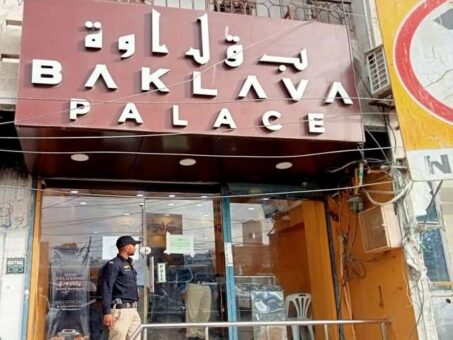KARACHI: Federal Board of Revenue (FBR) has sacked a Customs appraising officer (BS-16) on charges of misconduct and inefficiency.
According to a notification issued on Tuesday, the FBR said disciplinary proceedings were initiated against Arjad Abbas Khosa, Appraising Officer (BS-16), Collectorate of Customs, Islamabad under the Civil Servants (Efficiency & Discipline) Rules, 2020 on account of acts of omission and commission constituting ‘Inefficiency’ and ‘Misconduct’.
READ MORE: Customs chemical examiner awarded ‘removal from service’
Ms. Kaukab Farooq, Additional Collector (BS-19), Collectorate of Customs, Islamabad was appointed as Inquiry Officer on January 06, 2022, who conducted inquiry under the Civil Servants (Efficiency & discipline) Rules, 2020 and submitted inquiry report to the Board on March 04, 2022 with the findings that the Allegation No. (i), (ii) and (iii) as mentioned in Order of Inquiry stand proved against the accused Appraising Officer.
The Inquiry Officer has concluded that the charges of “inefficiency” and “Misconduct” against the accused officer stand established.
READ MORE: President Alvi retains major penalty on NAB official
On the basis of Inquiry Report, Show Cause Notice was served on March 18, 2022 upon Arjad Abbas Khosa, Appraising Officer (BS-16), Collectorate of Customs, Islamabad. The Collectorate served show cause notice to the accused by displaying on notice board, on his personal email address and through courier on his given residential addresses.
The accused failed to submit his defence reply to the show cause notice nor made any request for personal hearing during the stipulated time period. As no defence reply to show cause notice has been submitted before the Member
(Admn/HR)/Authority by the accused, the authority, by considering the available case record and inquiry report has observed that the accused has been absconding from duty w.e.f. April 16, 2021 without any intimation. Therefore, the charges leveled vide Order of Inquiry dated January 06, 2022 stand established.
READ MORE: Customs officer awarded ‘major penalty’ for corruption
Accordingly, the Member (Admn/ HR) / Authority has decided that the charges of “Inefficiency” and “misconduct” under Rule 3(a) and (b) of Civil Servants (E&D) Rules, 2020 stand established against the accused.
The Authority has, therefore, imposed major penalty of “Dismissal from Service” upon Arjad Abbas Khosa, Appraising Officer (BS-16), Collectorate of Customs, Islamabad under Rule-4(3)(e) of the Civil Servants (E&D) Rules, 2020.
The officer will have a right to file appeal against this Order to the Appellate Authority under Civil Servants (Appeals) Rules, 1977 within a period of 30 days from the date of communication of this notification.





